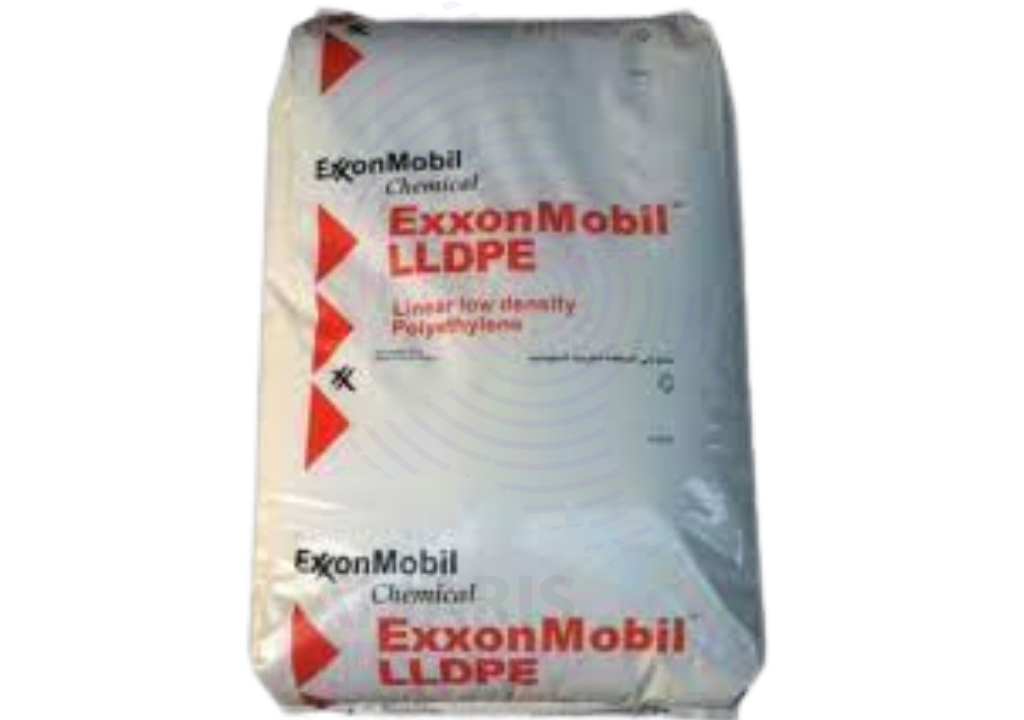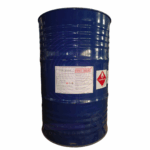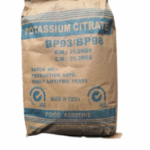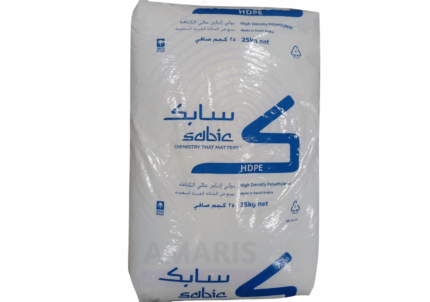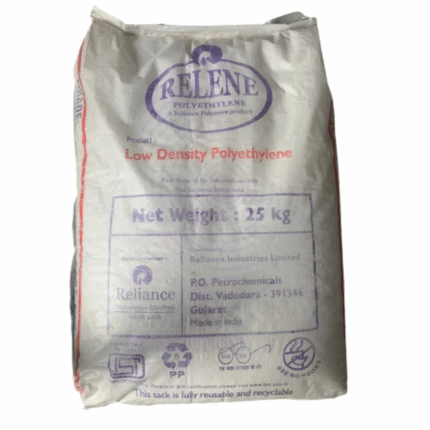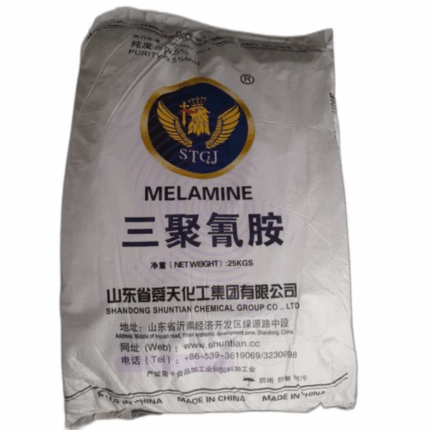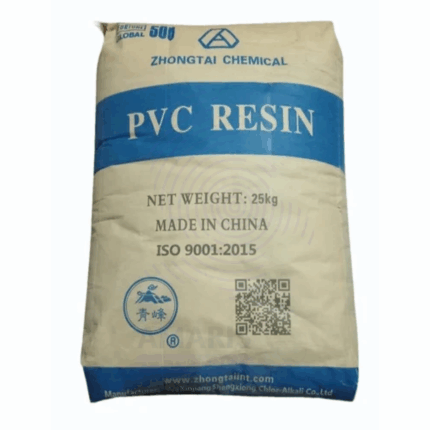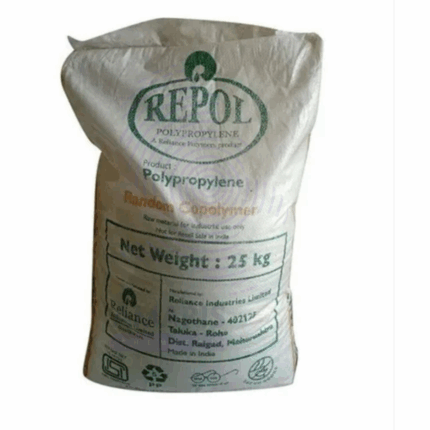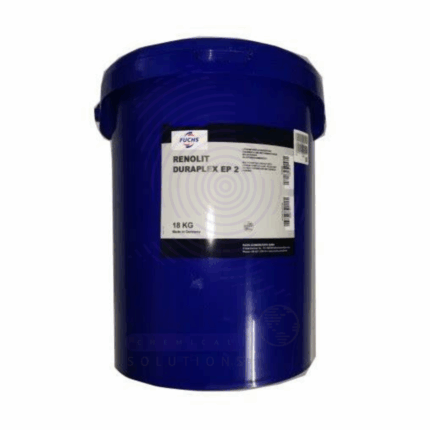LLDPE injection 6201XR
Whatsapp Order
LLDPE injection 6201XR is a linear low-density polyethylene resin specially formulated for injection molding applications. It offers excellent processability, high impact strength, and good flexibility. The material provides a balance of mechanical performance and ease of molding, making it ideal for producing thin-walled and complex-shaped parts. With superior clarity and toughness, LLDPE Injection 6201XR is widely used in manufacturing durable consumer goods, automotive components, and packaging items.
Description
Table of Contents
Toggle
LLDPE injection 6201XR
Primary Uses
- Injection Molding
- Used extensively in injection molding processes to produce containers, caps, closures, and household items requiring toughness and flexibility.
- Suitable for making thin-walled parts due to its good flow properties and rapid solidification.
- Packaging Industry
- Ideal for producing flexible packaging components such as caps, lids, and rigid pouches.
- Employed in manufacturing reusable containers and food packaging parts that require durability and chemical resistance.
- Automotive Components
- Used in manufacturing interior and exterior parts like trims, bumpers, and protective covers, benefiting from its impact resistance and dimensional stability.
Secondary Uses
- Consumer Goods
- Used to produce household items such as storage bins, toys, and containers that require a combination of strength and flexibility.
- Agricultural Applications
- Occasionally employed in molded components for agricultural equipment and tools that benefit from toughness and weather resistance.
- Industrial Components
- Used in creating parts for appliances, electronic housings, and other industrial molded goods where durability and chemical resistance are important.
KEY PRODUCT FEATURES
1. Basic Identification Attributes
- Chemical Name (IUPAC): Polyethylene, linear low-density
- Common/Trade Name: LLDPE Injection 6201XR
- CAS Number: 9002-88-4
- HS Code: 3901.20.00
- Synonyms: Linear low-density polyethylene resin; LLDPE resin; Injection molding grade LLDPE
2. Physical & Chemical Properties
- Physical State: Granular resin pellets
- Color & Odor: Natural (translucent to slightly opaque); odorless
- Melt Flow Index (MFI): Typically 2-4 g/10 min (varies by batch)
- Density: Approximately 0.92 g/cm³
- Tensile Strength: High impact strength and elongation
- Processing Temperature: Injection molding range 190–250°C
3. Safety & Hazard Attributes
- GHS Classification: Not classified as hazardous under normal handling and processing
- Toxicity: Non-toxic, inert polymer resin
- Exposure Limits: No specific occupational limits; use standard industrial hygiene
4. Storage & Handling Attributes
- Storage Conditions: Store in dry, cool areas, away from direct sunlight and moisture
- Container Type: Supplied in sealed bags or boxes on pallets
- Shelf Life: Stable for several years if stored properly
- Handling Precautions: Avoid dust generation during handling; prevent contamination
5. Regulatory & Compliance Attributes
- Complies with FDA and EU regulations for food contact materials where applicable
- Meets REACH and RoHS chemical safety standards
6. Environmental & Health Impact
- Biodegradability: Not biodegradable but recyclable depending on local recycling capabilities
- Ecotoxicity: Low environmental toxicity when managed properly
- Bioaccumulation: Not applicable
- Carcinogenicity/Mutagenicity: Not classified as carcinogenic
SAFETY HANDLING PRECAUTIONS
Safety Handling Precautions
- PPE Required: Gloves and dust mask recommended if handling large quantities
- Handling Guidelines: Use adequate ventilation to avoid dust inhalation during processing
- Storage Measures: Keep containers sealed and dry
First Aid Measures
- Inhalation: Move to fresh air if dust causes irritation
- Skin Contact: Wash with soap and water if irritation occurs
- Eye Contact: Rinse with water if dust contacts eyes
- Ingestion: Not applicable
Firefighting Measures
- Fire Hazards: Combustible solid, burns with dense smoke
- Extinguishing Media: Water spray, foam, dry chemical, or CO₂
- Special Precautions: Avoid inhalation of fumes from burning material
- Hazardous Combustion Products: Carbon monoxide, carbon dioxide, hydrocarbons
Related products
HDPE pipe HS CRP 100- PE 100 (black water pipe)
HDPE pipe HS CRP 100- PE 100 (black water pipe) is a high-density polyethylene (HDPE) pipe grade resin specially designed for the manufacture of high-performance pressure pipes. This grade corresponds to PE 100 classification, meaning it has enhanced strength and durability characteristics suitable for high-pressure applications. The resin exhibits excellent resistance to slow crack growth, outstanding chemical resistance, and superior impact strength even at low temperatures. HDPE PE 100 pipe is widely used in demanding infrastructure, water supply, gas distribution, and industrial piping systems due to its long service life, flexibility, and corrosion resistance.
LDPE film 200F
LDPE film 200F is a low-density polyethylene (LDPE) film with a thickness of 200 microns (0.2 mm). It is a flexible, transparent, and durable plastic film known for its excellent impact resistance, moisture barrier properties, and chemical inertness. LDPE films are widely used in packaging, agricultural applications, and protective coverings due to their toughness, ease of sealing, and resistance to tearing. The 200F grade indicates a medium thickness suitable for heavy-duty wrapping and industrial uses.
Melamine
Melamine is an organic compound widely used as a raw material in the production of melamine-formaldehyde resins, laminates, adhesives, coatings, and flame retardants. It offers excellent hardness, thermal stability, and chemical resistance. Supplied in 25kg bags, melamine is a white crystalline powder with high nitrogen content, making it a valuable additive in plastics, construction materials, and surface treatments.
Polyvinyl Chloride Resin
Polyvinyl Chloride Resin is a white, odorless powder widely used as the base material in the production of both rigid and flexible PVC products. It is produced by polymerizing vinyl chloride monomer (VCM) and is categorized by K-value, which defines molecular weight and processing characteristics. PVC resin is valued for its durability, chemical resistance, electrical insulation, and flame retardancy. It is one of the most versatile plastics used across multiple industries including construction, electrical, automotive, packaging, and healthcare.
Polyvinyl Chloride Resin 701
Polyvinyl Chloride Resin 701 is a high-quality suspension-grade polyvinyl chloride resin with a K-value of approximately 70–71, indicating high molecular weight. It is widely used in the production of flexible PVC products where excellent strength, elongation, and plasticizer absorption are required. PVC Resin 701 offers superior mechanical properties, high thermal stability, and good compatibility with plasticizers, making it suitable for calendaring, extrusion, and molding applications in diverse industries.
PP Copolymer 37MK10
PP Copolymer 37MK10 is a polypropylene copolymer resin characterized by enhanced clarity, impact resistance, and flexibility compared to homopolymer polypropylene. This copolymer combines propylene with a small percentage of ethylene, resulting in improved toughness and processability. It is widely used in injection molding, extrusion, and film applications across various industries, offering excellent chemical resistance and durability.
Renolit Duraplex EP 2, 3
Renolit Duraplex EP 2 and EP 3 are high-performance extreme pressure (EP) lithium-based grease lubricants designed for heavy-duty industrial and automotive applications. These greases provide excellent mechanical stability, water resistance, and protection against wear and corrosion under high load and temperature conditions. Formulated with high-quality base oils and additives, Renolit Duraplex EP greases ensure long service intervals and reliable operation of bearings, joints, and other moving components.
Toluene Diisocyanate
Toluene Diisocyanate is a highly reactive chemical compound primarily used as a key raw material in the production of polyurethane foams. It is a colorless to pale yellow liquid with a pungent odor and is valued for its ability to react with polyols to form flexible and rigid polyurethane products. TDI’s versatility makes it indispensable in industries like furniture, automotive, insulation, and coatings.


 Preservatives(food)
Preservatives(food) Flavor Enhancers
Flavor Enhancers Acidulants
Acidulants Sweeteners
Sweeteners Antioxidants
Antioxidants Colorants(food)
Colorants(food) Nutraceutical Ingredients (food)
Nutraceutical Ingredients (food) Nutrient Supplements
Nutrient Supplements Emulsifiers
Emulsifiers
 Collectors
Collectors Dust Suppressants
Dust Suppressants Explosives and Blasting Agents
Explosives and Blasting Agents Flocculants and Coagulants
Flocculants and Coagulants Frothers
Frothers Leaching Agents
Leaching Agents pH Modifiers
pH Modifiers Precious Metal Extraction Agents
Precious Metal Extraction Agents
 Antioxidants(plastic)
Antioxidants(plastic) Colorants (Pigments, Dyes)
Colorants (Pigments, Dyes) Fillers and Reinforcements
Fillers and Reinforcements Flame Retardants
Flame Retardants Monomers
Monomers Plasticizers
Plasticizers Polymerization Initiators
Polymerization Initiators Stabilizers (UV, Heat)
Stabilizers (UV, Heat)
 Antifoaming Agents
Antifoaming Agents Chelating Agents
Chelating Agents Coagulants and Flocculants
Coagulants and Flocculants Corrosion Inhibitors
Corrosion Inhibitors Disinfectants and Biocides
Disinfectants and Biocides Oxidizing Agents
Oxidizing Agents pH Adjusters
pH Adjusters Scale Inhibitors( water)
Scale Inhibitors( water)
 Antioxidants(cosmetic)
Antioxidants(cosmetic) Emollients
Emollients Fragrances and Essential Oils
Fragrances and Essential Oils Humectants
Humectants Preservatives
Preservatives Surfactants(cosmetic)
Surfactants(cosmetic) Thickeners
Thickeners UV Filters
UV Filters
 Fertilizers
Fertilizers Soil Conditioners
Soil Conditioners Plant Growth Regulators
Plant Growth Regulators Animal Feed Additives
Animal Feed Additives Biostimulants
Biostimulants Pesticides (Herbicides, Insecticides, Fungicides)
Pesticides (Herbicides, Insecticides, Fungicides)
 Active Pharmaceutical Ingredients (APIs)
Active Pharmaceutical Ingredients (APIs) Excipients
Excipients Solvents(pharmaceutical)
Solvents(pharmaceutical) Antibiotics
Antibiotics Antiseptics and Disinfectants
Antiseptics and Disinfectants Vaccine Adjuvants
Vaccine Adjuvants Nutraceutical Ingredients (pharmaceutical)
Nutraceutical Ingredients (pharmaceutical) Analgesics & Antipyretics
Analgesics & Antipyretics
 Analytical Reagents
Analytical Reagents Solvents(lab)
Solvents(lab) Chromatography Chemicals
Chromatography Chemicals Spectroscopy Reagents
Spectroscopy Reagents microbiology-and-cell-culture-reagents
microbiology-and-cell-culture-reagents Molecular Biology Reagents
Molecular Biology Reagents Biochemical Reagents
Biochemical Reagents Inorganic and Organic Standards
Inorganic and Organic Standards Laboratory Safety Chemicals
Laboratory Safety Chemicals Specialty Laboratory Chemicals(Special Laboratory Equipment)
Specialty Laboratory Chemicals(Special Laboratory Equipment)
 Demulsifiers
Demulsifiers Hydraulic Fracturing Fluids
Hydraulic Fracturing Fluids Scale Inhibitors(oil)
Scale Inhibitors(oil) Surfactants(oil)
Surfactants(oil) Drilling Fluids
Drilling Fluids
 Dyes and Pigments
Dyes and Pigments Bleaching Agents
Bleaching Agents Softening Agents
Softening Agents Finishing Agents
Finishing Agents Antistatic Agents
Antistatic Agents
 Admixtures
Admixtures Waterproofing Agents
Waterproofing Agents Sealants and Adhesives
Sealants and Adhesives Curing Compounds
Curing Compounds Concrete Repair Chemicals
Concrete Repair Chemicals Anti-Corrosion Coatings
Anti-Corrosion Coatings
 Surfactants(cleaning)
Surfactants(cleaning) Builders
Builders Enzymes
Enzymes Solvents (Cleaning)
Solvents (Cleaning) Fragrances
Fragrances
 Electronic Chemicals
Electronic Chemicals Catalysts
Catalysts Lubricants
Lubricants Photographic Chemicals
Photographic Chemicals Refrigerants
Refrigerants Automotive chemicals
Automotive chemicals Pyrotechnic Chemicals
Pyrotechnic Chemicals
 Biodegradable Surfactants
Biodegradable Surfactants Bio-based Solvents
Bio-based Solvents Renewable Polymers
Renewable Polymers Carbon Capture Chemicals
Carbon Capture Chemicals Wastewater Treatment Chemicals
Wastewater Treatment Chemicals
 Pigments
Pigments Solvents(paint)
Solvents(paint) Specialty Coatings
Specialty Coatings Binders/Resins
Binders/Resins Additives
Additives Driers
Driers Anti-Corrosion Agents
Anti-Corrosion Agents Functional Coatings
Functional Coatings Application-Specific Coatings
Application-Specific Coatings
 Fresh Herbs
Fresh Herbs Ground Spices
Ground Spices Whole Spices
Whole Spices Spice Blends
Spice Blends Dried Herbs
Dried Herbs
 Leavening Agents
Leavening Agents Dough Conditioners
Dough Conditioners Flour Treatments
Flour Treatments Fat Replacers
Fat Replacers Decoratives
Decoratives Preservatives(baking)
Preservatives(baking)
 Plasticizers & Softeners
Plasticizers & Softeners Reinforcing Agents
Reinforcing Agents Adhesion Promoters
Adhesion Promoters Vulcanizing Agents
Vulcanizing Agents Antidegradants
Antidegradants Blowing Agents
Blowing Agents Fillers & Extenders
Fillers & Extenders Accelerators & Retarders
Accelerators & Retarders